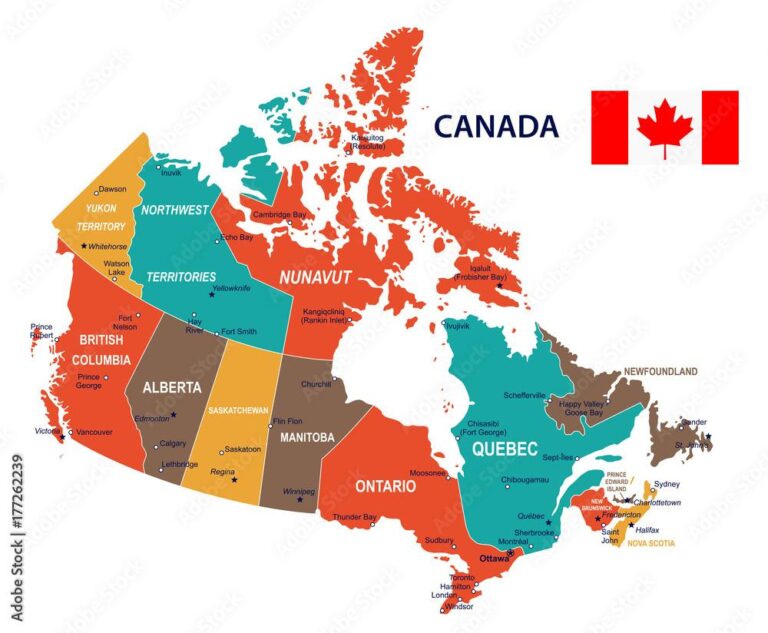Canada has unveiled a comprehensive new immigration and security bill aimed at overhauling the country’s approach to border control and refugee processing. The proposed legislation, announced this week, seeks to enhance national security measures while streamlining the immigration system amid growing global migration pressures. The government asserts the bill will balance the need for safety with a commitment to humanitarian principles, but it has already sparked debate among policymakers, advocacy groups, and legal experts. This article examines the key provisions of the bill and explores its potential impact on Canada’s immigration landscape.
Canada Unveils Comprehensive Immigration Reform Targeting Streamlined Processes and Enhanced Enforcement
The new legislation aims to overhaul Canada’s immigration framework by expediting application processing times while bolstering border security measures. Key components include the introduction of advanced digital platforms designed to streamline visa approvals and reduce paperwork, alongside stricter penalties for fraudulent applications. Authorities are also set to increase funding for enforcement agencies to ensure tighter control over unauthorized entries and overstayed visas.
Among the proposed reforms are several critical initiatives:
- Fast-track pathways for highly skilled workers and entrepreneurs to address labor shortages
- Enhanced collaboration with provincial governments to improve regional immigration outcomes
- Strengthened verification processes using biometric data to prevent identity fraud
- Increased support for integration programs focusing on language training and employment assistance
| Policy Area | Current Status | Proposed Change |
|---|---|---|
| Visa Processing | Average 12 months | Reduce to 6 months |
| Border Enforcement | Limited manpower | Increase by 30% |
| Fraud Detection | Manual reviews | Automated biometric checks |
Security Provisions Spark Debate Over Civil Liberties and Border Control Measures
The proposed legislation introduces a series of strict measures aimed at enhancing border security while raising significant concerns among civil liberties advocates. Key provisions include increased powers for border officers to conduct searches and detain individuals without immediate cause, as well as expanded surveillance capabilities near border zones. Critics argue that these powers could lead to potential abuses and set troubling precedents for privacy rights.
Supporters of the bill emphasize:
- Strengthening national security and preventing illegal crossings.
- Improving inter-agency cooperation along the borders.
- Allocating more resources to border infrastructure and technology.
Opponents, meanwhile, have highlighted the risk of discriminatory profiling and erosion of procedural safeguards, urging lawmakers to balance security with respect for fundamental freedoms. The debate continues to intensify as stakeholders line up on both sides, reflecting the complex challenge of managing immigration in an era of heightened security concerns.
| Measure | Proponents’ View | Opponents’ Concern |
|---|---|---|
| Expanded Search Powers | Faster incident response | Potential for privacy violations |
| Detention Authority | Improved law enforcement | Risk of arbitrary detention |
| Increased Surveillance | Enhanced border monitoring | Mass data collection fears |
Experts Call for Balanced Approach Combining National Security with Humanitarian Commitments
As Canada moves forward with its ambitious immigration and security legislation, experts emphasize the need for a carefully calibrated strategy that upholds national safety without undermining the country’s long-standing humanitarian values. Analysts from various fields agree that the proposed bill must strike a balance by incorporating robust measures to detect and prevent security threats, while simultaneously protecting the rights and dignity of vulnerable migrants and refugees. The challenge lies in crafting policies that do not sacrifice one priority for the other but instead foster coexistence and mutual benefit.
Key components suggested by specialists include:
- Enhanced vetting procedures to address security risks efficiently.
- Streamlined asylum processes to reduce backlogs and ensure timely decisions.
- Support systems for integration to help newcomers adapt and contribute economically and socially.
- Clear accountability frameworks to maintain transparent oversight and protect civil liberties.
| Priority Area | Proposed Action | Expected Impact |
|---|---|---|
| Security | Use of advanced data analytics | Faster threat identification |
| Humanitarian | Expedited family reunion programs | Improved migrant well-being |
| Governance | Independent review panels | Accountability and fairness ensured |
Insights and Conclusions
As the proposed immigration and security bill advances through Canada’s legislative process, it signals a significant shift in the country’s approach to managing migration and national security. Critics and supporters alike are closely monitoring developments, with debates expected to continue in Parliament and among the public. The outcome of this sweeping proposal will not only shape Canada’s immigration landscape but also reflect broader priorities in balancing openness with border protection in an increasingly complex global environment.




